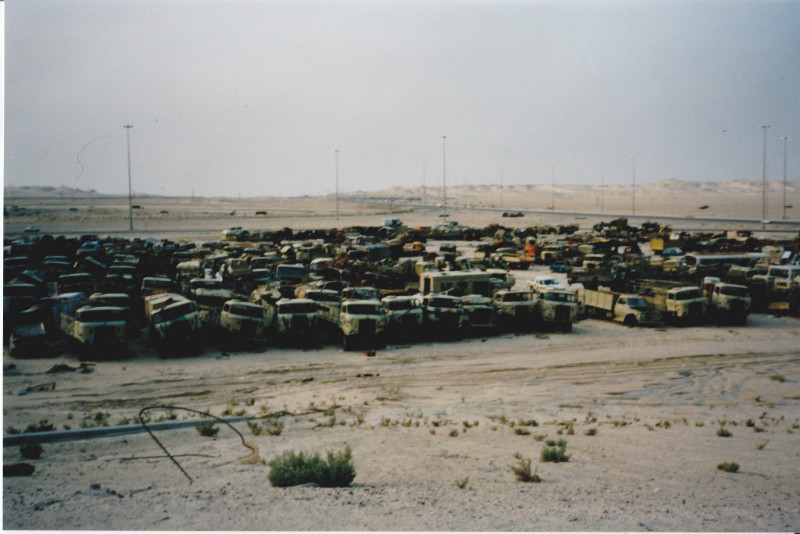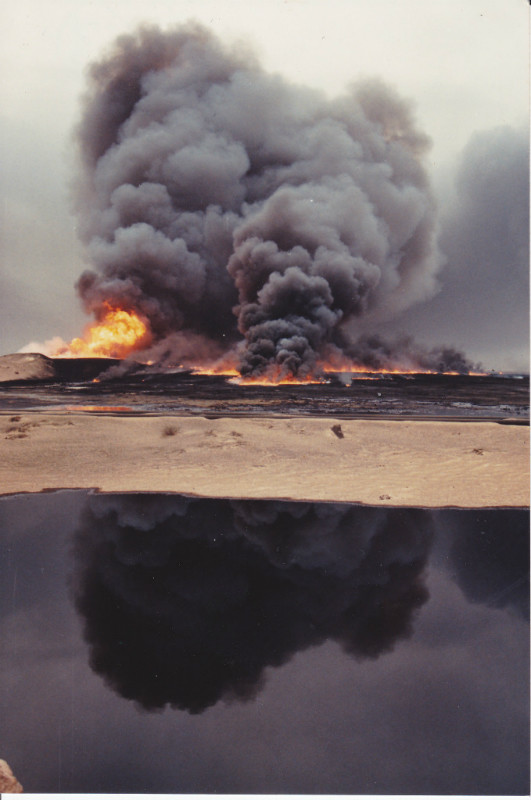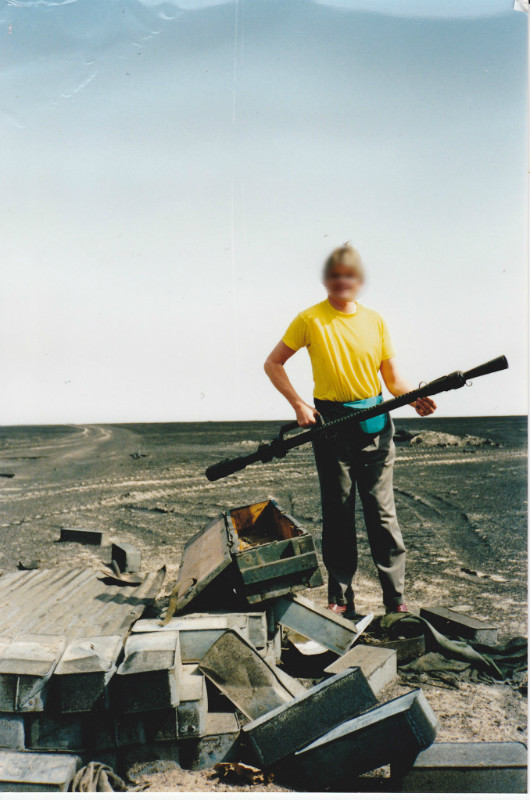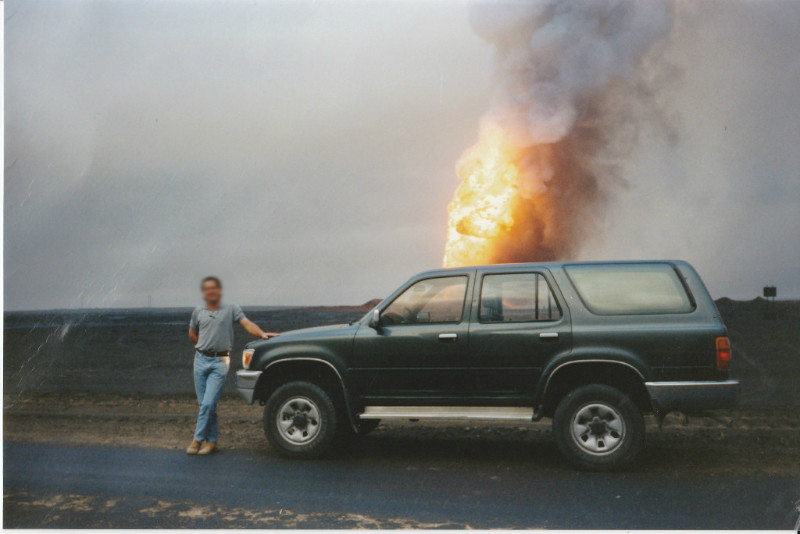When Saddam Hussein invaded Kuwait on August 2, 1990, he set in motion a political conflict that resulted in a devastating man-made environmental catastrophe. He had sworn that if he was “evicted from Kuwait by force, then Kuwait will be burned,” and it turned out he wasn’t just joking around or in one of his “funny moods.”
And so he stayed true to his word, and he burned it. Upon evacuation, Iraqi troops worked their way through Kuwait’s oil fields and set fire to nearly 700 oil wells. The fires started in January 1991, and the last of them was extinguished ten months later. All in all, they consumed an estimated six million barrels of oil per day.
Due to the number of wells burning, it was impossible for one or even a few teams of firefighters to extinguish them in the necessary time to avert a global catastrophe. So, the Kuwaiti government called out for international aid. About 50 countries from across the globe responded to the call, including Britain, whose team I was a part of.
We arrived on February 28, 1991, and I can still recall the apocalyptic scene that greeted me outside my airplane window as we touched down in Kuwait. It was the middle of the afternoon, but the sky was so black it looked like midnight, and as we flew below the cloud level, the only thing you could see were 700 oil wells, all burning at the same time.
Videos by VICE
We were sent to work in northern oil fields, and the 30-mile drive from the airport to the camp was something I will never forget. As we passed Kuwait City, the images of devastation and human carnage were horrifying. Vehicles and bodies were strewn everywhere. Corpses were hanging out of cars on the roadside. Official figures count Kuwait’s losses at around 10,000, but unofficially the numbers seemed closer to 100,000.
The camp where we stayed was situated just between the burning wells, so I had to endure plenty of sleepless nights as the fires roared and lit the sky, and the desert temperatures dropped drastically when the sun went down. As if that weren’t enough, the camp was also surrounded by minefields. The empty burnt-out tanks and ordnance left by the fleeing troops littered the desert like beer bottles after a weekend music festival. When driving I would not dare leave the road.
By November all the fires were out, and the firefighting teams dwindled back to their respective homelands, richer for the experience in more ways than one. These pictures are from my first week on the job.




























